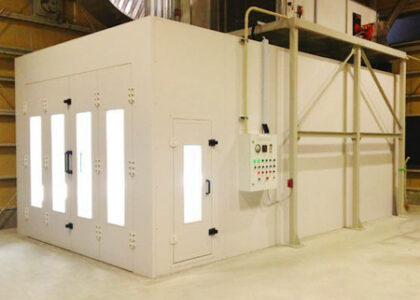The plant-based foam market is anticipated to be worth US$ 220.0 million in 2023 and US$ 457.0 million by 2033. During the projection period, plant-based foam sales are expected to grow at a substantial CAGR of 7.6%.
The rise of plant-based foam signifies a shift toward sustainable and eco-friendly materials. With its renewable nature, versatile applications, and growing consumer demand, plant-based foam is reshaping various industries.
Regulatory support and collaboration among stakeholders are fostering innovation and improving product performance. Awareness campaigns and sustainability initiatives are educating consumers and industries about the benefits of plant-based foam.
Download a Sample Report: https://www.futuremarketinsights.com/reports/sample/rep-gb-17229
The future of the plant-based foam market appears promising. As economies of scale and advancements in manufacturing processes continue to reduce costs, plant-based foam is becoming increasingly competitive with traditional foam materials.
Ongoing research and development efforts are expected to bring forth sustainable and high-performance variants of plant-based foam, opening new possibilities across industries.
Market Players:
3M Company, Ashland Global Specialty Chemicals Inc., Bostik SA (Arkema S.A), Coim Group, DIC Corporation, Dow Inc., DuPont de Nemours Inc., Evonik Industries AG, Flint Group, H.B. Fuller Company, Henkel AG & Co. KGaA, L.D. Davis Industries Inc., Sika AG, and Vimasco Corporation.
Key Takeaways:
- In 2022, soy-based foam captured a 40% market share due to its renewable nature and derived from soybean oil. It offers cushioning properties, durability, and resistance to deformation, making it popular in mattresses, furniture, automotive seating, and insulation materials.
- The packaging industry holds a significant 50% share, utilizing plant-based foam in packaging applications for electronics, fragile goods, food and beverages, healthcare products, and consumer goods.
- Flexible foam dominates with a 60% market share, valued for its versatility and comfort in furniture, bedding, automotive, and packaging.
- North America commands a 35% market share, driven by consumer awareness, established industries, supportive regulations, and advanced capabilities.
- Europe holds a substantial 29.7% share, influenced by demand for eco-friendly materials, regulations, and automotive and packaging industries.
- Asia Pacific region is projected to expand by 6.9%, driven by demand for eco-friendly products, government initiatives, and increased use in packaging, automotive, and construction.
Ask an Analyst: https://www.futuremarketinsights.com/ask-the-analyst/rep-gb-17229
Regional Analysis:
- North America:
- Key Markets: The United States and Canada are significant markets for plant-based foam products.
- Consumer Awareness: North America has a growing environmentally conscious consumer base that favors sustainable and plant-based materials.
- Industrial Applications: Plant-based foams find applications in various industries, including packaging, construction, and automotive, in North America.
- Europe:
- Key Markets: Major European markets include Germany, the United Kingdom, France, and the Netherlands.
- Sustainability Initiatives: Europe is at the forefront of sustainability initiatives, driving the demand for eco-friendly materials like plant-based foams.
- Regulations: Stringent environmental regulations encourage the use of sustainable materials in packaging and construction.
- Asia-Pacific (APAC):
- Key Markets: China, India, Japan, and South Korea are significant markets in APAC.
- Rapid Urbanization: APAC countries experience rapid urbanization and construction activities, increasing the demand for sustainable building materials.
- Consumer Goods: Plant-based foams are used in consumer goods packaging and manufacturing in the region.
- Latin America:
- Emerging Markets: Countries like Brazil and Mexico are emerging as important markets for plant-based foams.
- Agricultural Resources: Latin America’s rich agricultural resources contribute to the availability of plant-based raw materials.
- Middle East and Africa (MEA):
- Growing Awareness: MEA countries are gradually recognizing the importance of sustainable materials, including plant-based foams.
- Construction: Sustainable building practices and materials are gaining traction in the construction industry in the MEA region.
- Regional Raw Materials:
- Availability of plant-based raw materials can vary by region, influencing production and cost factors.
- Cultural Factors:
- Cultural preferences and awareness of sustainability may vary by region and impact consumer choices and market demand.
Market Segmentation:
By Material:
- Soy
- Corn
- Bamboo
- Sugarcane
- Algae
By Product Type:
- Rigid Foam
- Flexible Foam
- Spray Foam
- Molded Foam
- Others
By End Use:
- Packaging
- Automotive
- Construction
- Furniture
- Bedding
- Textiles,
- Electronics.
By Region:
- North America
- Latin America
- Western Europe
- Eastern Europe
- Asia Pacific Excluding Japan (APEJ)
- Japan
- The Middle East & Africa (MEA)
Request For Customization: https://www.futuremarketinsights.com/customization-available/rep-gb-17229
About Future Market Insights (FMI)
Future Market Insights, Inc. (ESOMAR certified, recipient of the Stevie Award, and a member of the Greater New York Chamber of Commerce) offers profound insights into the driving factors that are boosting demand in the market. FMI stands as the leading global provider of market intelligence, advisory services, consulting, and events for the Packaging, Food and Beverage, Consumer Technology, Healthcare, Industrial, and Chemicals markets. With a vast team of over 5000 analysts worldwide, FMI provides global, regional, and local expertise on diverse domains and industry trends across more than 110 countries.
Contact Us:
Future Market Insights Inc.
Christiana Corporate, 200 Continental Drive,
Suite 401, Newark, Delaware – 19713, USA
T: +1-845-579-5705
For Sales Enquiries: sales@futuremarketinsights.com
Website: https://www.futuremarketinsights.com
LinkedIn| Twitter| Blogs | YouTube

